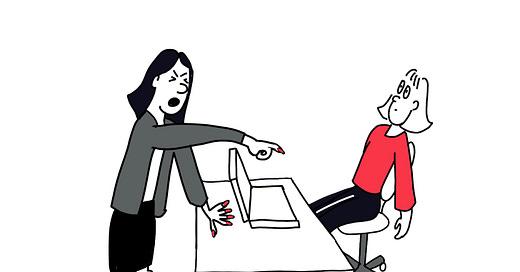Drawing by Tineke Tammes
Have you ever been bullied at work?
Quick answer? Before you say it?
Yes. I know you have. Because I have talked to women on calls who’ve been the victim of workplace bullying.
AND I’ve spoken to those of you who have seen it happen to others (and were grateful it wasn’t them, whilst - at the same time - offering support to the p…





